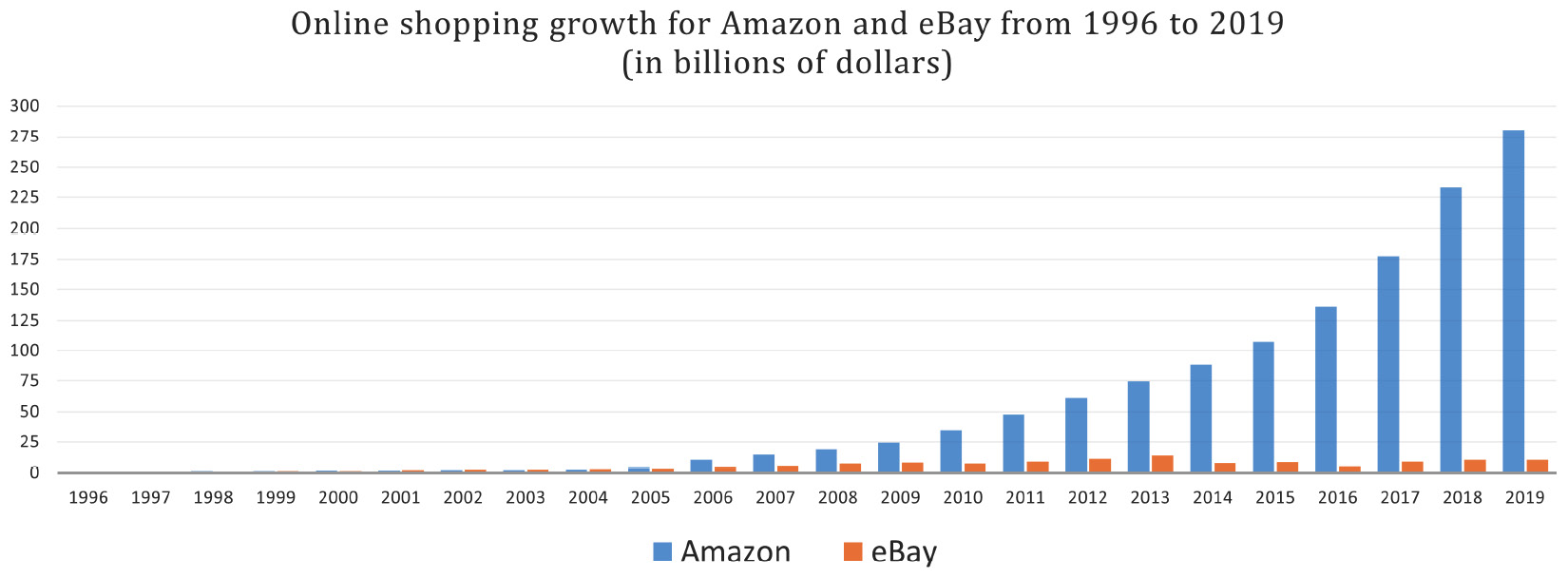Exploring the beginning of the digitization era
Lots of companies across the globe started the digital transformation process around the 1950s, when Dr Presper Eckert and Dr John Mauchly invented the UNIVAC, the Universal Automatic Computer, after receiving funds from the Census Bureau. This computer was the first commercial computer for business and government applications! The real leap, though, when things started to become super-duper serious, was in the 1990s, due to the diffusion of the world wide web. If you think about it, ever since then, shopping, banking, working, health, education, and so on, changed forever!
I remember when I was a kid at the end of 1990s; during weekends, my family and I used to go to the shops. There, like everyone else, me, my twin brother, my sister, and our parents bought new clothes, groceries, or new games for the PC (which was my and my dad's favorite!). At that time, no one thought that one day you would be able to buy groceries using your PC or your smartphone. For example, while I'm writing this book, my partner and I are also moving to a new house and have bought a new sofa and a few other pieces of furniture online.
In the following graph, you can have a look at the growth, from 1996, of two of the biggest e-commerce companies – Amazon and eBay:

Figure 1.2 – Growth of Amazon and eBay online shopping from 1996 to 2019
The important thing here that I would like you to understand is that since the 1990s (more or less), the impact of digitalization has been huge for every field, not only for e-commerce. Things such as paper and photographs have been transformed into binary code, the ones and the zeros of computer storage.
Let me ask you this question: Why is data so valuable?
The short answer is that, today, data is profitable. Google and Facebook, for example, built an empire by collecting and analyzing people's data, and today, advertisement companies can even predict what you'll buy tomorrow, literally. When I'm talking to friends and colleagues about this subject, I like to ask them a question, so I want to do the same with you: Do you remember what you were doing or searching on the internet in May 2009, for example? No? Well, Google does. The data we provide to those companies is so vast that they found a new name for it: big data!
But to better understand this sea of data, to use that information to upgrade a company process or find possible mistakes, or even predict something somehow, companies needed to turn it from raw data into well-organized information. And once they did that, they could give advertisers, for example, a set of tools to target their potential customers with astonishing precision. At this point, with all of the data turned into useful information, they needed to build something technologically advanced to analyze and categorize everything deeply, and use that information to make future predictions. That's where Artificial Intelligence (AI) comes to the stage. To give you an example, let's look at the social media platform Facebook. Instead of merely offering advertisers the ability to target their users using data such as demographics, gender, or consumer preferences, they instead provided the ability to target them based on what they will think, how they will behave, and what they will buy. Facebook, back in 2016, revealed an AI engine with self-improving capabilities that could predict all of those things!
And as insane and frightening and unique as it may sound, this is not the only prediction engine out there. In my opinion, I hope that governments will better regulate those systems because they raise more and more questions every day, especially ethically speaking. Think, for example, about Cambridge Analytica, the Facebook scandal of early 2018. Without going into too many details, Cambridge Analytica was implicated in a massive data breach. They used almost 90 million people's private data without their consent. That's massive. And the final goal was to create customized and targeted ads to address your vote for the upcoming political election. Again, like everything else, AI can help our society in many ways, but this is a clear example of how dangerous those systems may be in the wrong hands.
In this section, we just scratched the surface, introducing the events that started the digital era. Coming up, we will cover quite a curious subject: how digital content comes to life on the screens of our devices, starting from a series of ones and zeros.
























































